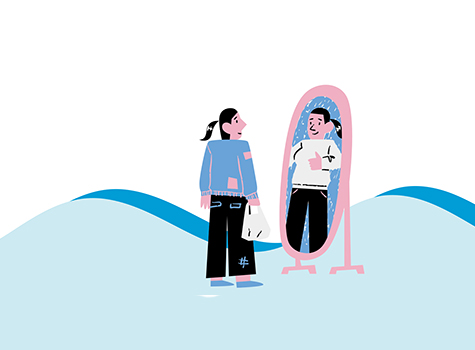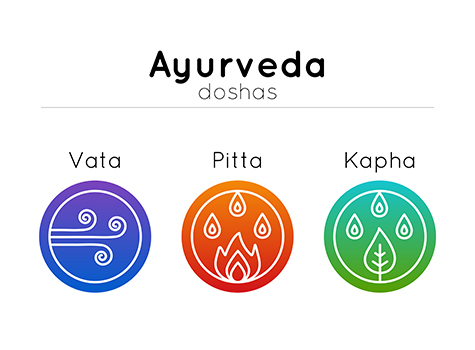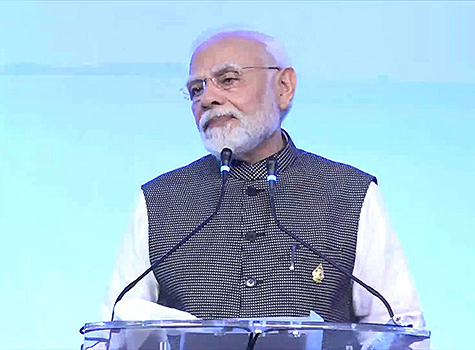My phone WhatsApp notifications go crazy between 10pm and 2am every single night.
Many people contact me every night frantic for some guidence about issues of love, relationships and sexual health.
One night, seventeen year-old Rohan contacted us and told us how he has been depressed since his break-up with his girlfriend of two years. We send messages back and forth for one hour, discussing his feelings about the breakup, how he is coping, and what support he has to be able to get through this hard time.
He says his marks are slipping in college, and he is scared to talk to his friends because he fears they will mock him.
I assure him that most people go through heartbreak in their lives and his friends would have felt the same thing and, ask him if he agrees. He says yes, and the tension felt in his initial messages lightens. He realizes he is not alone. He also recognizes his feelings and what he wants to do next. He signs off WhatsApp and tells me that I’ve really helped him as he had no one to talk to and I put the phone on silent knowing that more messages will greet me when I wake up.
These types of conversations comprise a typical day for me in India. Over the past year I have worked towards creating LoveDoctor, a place where anybody can confidentially ask questions about love, relationships, and sexual health. On typical days we are answering queries and reaching out to youth from 10am – 12 am (or later) to let them know their questions are important and worth answering.
LoveDoctor provides one-on-one counseling to young people via chat, SMS and WhatsApp, primarily in India and also in other developing countries, where this kind of information may not be easily available or is taboo.
Why am I spending my time responding to messages from lovelorn youth?
According to the UNa, many of the 453 million youth in India don’t have access to the type of sexuality and health education that can help them protect their health and make informed decisions about sexuality and reproduction. The very same information is essential to reducing adolescent pregnancies, unwanted pregnancies and unsafe abortions, and preventing the transmission and spread of sexually transmitted infections (STIs) and HIV/AIDS among young people.
International human rights standards require that governments guarantee the rights of adolescents to health, life, education and non-discrimination by providing them comprehensive sexuality education in primary and secondary schools that is scientifically accurate and objective, and free of prejudice and discrimination according to the agreed upon United Nations conventions – but many countries, including India and Pakistan, do not provide this type of education.
In fact, sexuality education is banned in India in 12 states!
For the past 13 years I have been working with NGOs and in the field of social service. LoveDoctor is the culmination of my experience in the gender-based violence sector, particularly working with local organization Kiran, where I discovered that most men and women have at some point in their lives, faced emotional or physical violence in their relationships, and many of the reasons they stay in such relationships and are scared to leave is that they are not taught about what comprises a healthy relationship in the first place!
After this experience with Kiran, I was living in Delhi during the infamous gang rape case and saw how India and the rest of the globe were finally ready to talk about issues of gender-based violence – but discussions about safer sex and healthy relationships were still off the table. How can you combat rape if you are not talking about what healthy sexual intimacy and healthy relationships actually are? Aren’t sexual violence and sexual health two sides of the same coin?
In all the years of talking to young people about their problems every time I went to India, I made the heartbreaking discovery that most of them really have no one to talk to. Embarrassment and fear prevents them from asking questions. And without vital information about their health and bodies, young people get diseases, unwanted pregnancies, shady abortions, and commit suicide.
I started to imagine a world where young people actually feel listened to, valued and validated. While living in Delhi I dreamt of a space where they are free to ask any question, where nothing is taboo. A place where they can learn about themselves, their bodies and how to have meaningful relationships that are fulfilling and free of sexually transmitted diseases.
I thought that if youth had such a place, they would live better, love better and have safer, intimate relationships. They would be happy.
I currently have 6 people working at LoveDoctor and this includes psychologists, counselors and trained volunteers. Besides the counseling via chat, sms, and WhatsApp, we also operate an active Facebook and Twitter page and blog filled with information on healthy relationships and sexual health.
The response so far has exceeded my expectations, with us already serving 200-250 people every day and most of the time we are the only people these youngsters can actually turn to.
There are millions of Rohans out there, all desperately in need of someone to talk to, of hearing a supportive voice answering their questions or simply to tell them that it will be ok. This is why a space like LoveDoctor is so crucial.
We are now expanding and planning on building an app to reach even more people, as well as a rural tool to help those living below the poverty line. We even serve people in western countries like the US and Canada that have questions about healthy relationships and sexuality.
There are so many young people that need this vital information and someone to talk to, and I am proud to say we have created a space for them to share and learn about themselves and their bodies and health.
Posted: Friday, July 3, 2015



